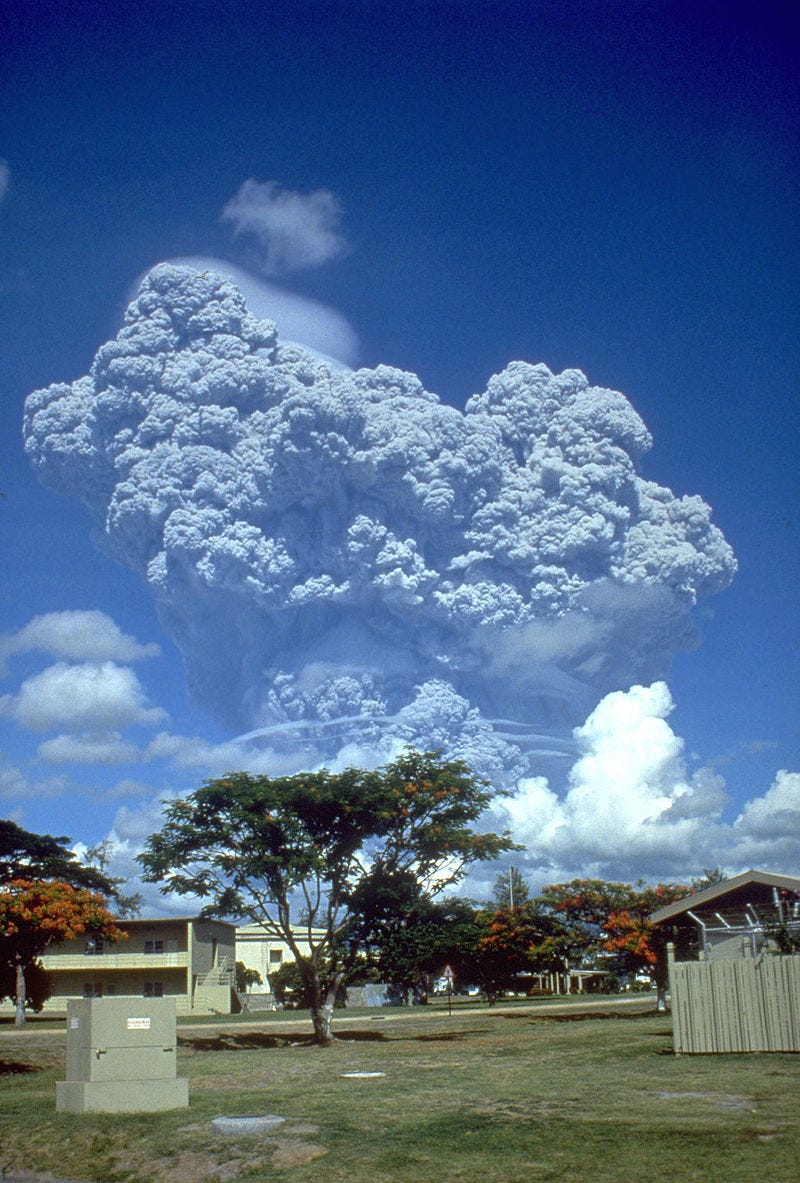Why dimming the Sun would be an effective tool in the fight against climate change
My new article in The Conversation explains why stratospheric aerosol geoengineering would work so well at offsetting the impacts of climate change.
It’s becoming increasingly clear that we will fail to meet our climate goals. We were already at 1.26°C of warming in 2022 and are on track to blow through 1.5°C in the mid-2030s. Research even suggests that current climate policy will lead to more than 2.5°C of warming by the end of this century.
Warming of this magnitude would devastate vulnerable communities and ecosystems around the world. It’s time we consider something radically new that could stop climate change in its tracks.
After powerful volcanic eruptions, like Tambora (Indonesia) in 1815 and Pinatubo (Philippines) in 1991, global temperatures dip for a few years. Major eruptions create a hazy layer of microscopic particles in the upper atmosphere that last for several years, dimming the Sun temporarily. We could copy this effect to fight climate change.
…
Read the full article at The Conversation.





Thank you Pete. I prefer the concept of Brightening the Earth rather than your phrase dimming the Sun. The point is to increase planetary albedo for sunlight reflection, recognising albedo is now falling by more that 1% per decade according to NASA. We have to reverse this planetary darkening and its dangerous acceleration of GHG heating. Brightening the Earth presents this in a positive way.
Jim Hansen argues in Global Warming in the Pipeline that Marine Cloud Brightening is the most innocuous way to start cooling the planet, partly because it is local, whereas stratospheric aerosol injection is necessarily global at latitude. His call for intervention with Earth’s radiation imbalance has potential to shift the debate.
A main reason MCB is more innocuous is that political agreement for MCB could be obtained within affected jurisdictions. That would show people the benefit of the concept of cooling, enabling a more receptive discussion of SAI. I would like to see Australia extend our testing of MCB on the Great Barrier Reef to the southern Indian Ocean. That would be optimal for reversing the local loss and damage from warming and would not affect any other countries.